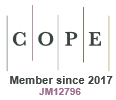Sugar in Mid-twentieth-century Australia: A Bittersweet Tale of Behaviour, Economics, Politics and Dental Health
H. F. Akers, M. A. Foley, P. J. Ford and L. P. Ryan
Historical Records of Australian Science
26(1) 20 - 35
Published: 04 May 2015
Abstract
History is replete with debates between health professionals with concerns about practices and products and others who either challenge scientific evidence or believe that the greatest public good is achieved through maintenance of the status quo. This paper provides a 1950s socio-scientific perspective on a recurring problem for health professionals. It analyses dentists' promotion of oral health by discouraging sugar consumption and the sugar industry's defence of its staple product. Despite scientific evidence in support of its case, the dental profession lacked influence with government and large sections of the Australian community. The division of powers within the Australian Constitution, together with the cause, nature and ubiquity of caries and Australians' tolerance of the disease, were relevant to the outcome. In contrast, the sugar industry was a powerful force. Sugar was a pillar of the Australian and Queensland economies. The industry contributed to the history of Queensland and to Queenslanders' collective psyche, and enjoyed access to centralized authority in decision-making. The timing of the debate was also relevant. Under Prime Minister Robert Menzies, the Australian Government was more concerned with promoting industry and initiative than oral health. This was a one-sided contest. Patterns of food consumption evolve from interactions between availability, culture and choice. Food and associated etiquettes provide far more than health, nutrients and enjoyment. They contribute to economic and social development, national and regional identity and the incidence of disease. The growing, milling and processing of sugarcane and the incorporation of sugar into the Australian diet is a case study that illuminates the interface between health professionals, corporations, society and the state. Today, for a variety of reasons, health professionals recommend limits for daily intake of sugar. Calls for dietary reform are not new and invariably arouse opposition. The issue came to the fore between 1945 and 1960, when dentists contended that the consumption of sugar either caused or contributed to a major health problem, namely dental caries (tooth decay). Representatives of the sugar industry defended their staple product against these claims, which emerged at a critical time for the industry. With hindsight, these exchanges can be seen as a precursor to more diverse and recurring debates relating to contemporary health campaigns. This paper documents and analyses the contemporaneous scientific and socio-political backgrounds underpinning these engagementshttps://doi.org/10.1071/HR15001
© Australian Academy of Science 2015


